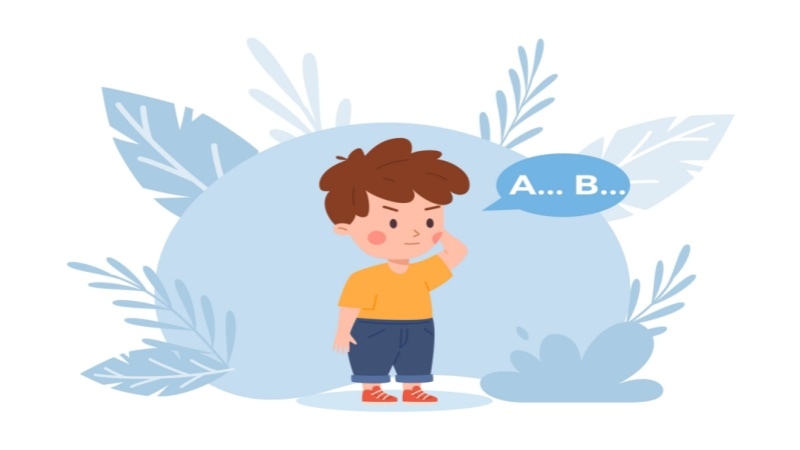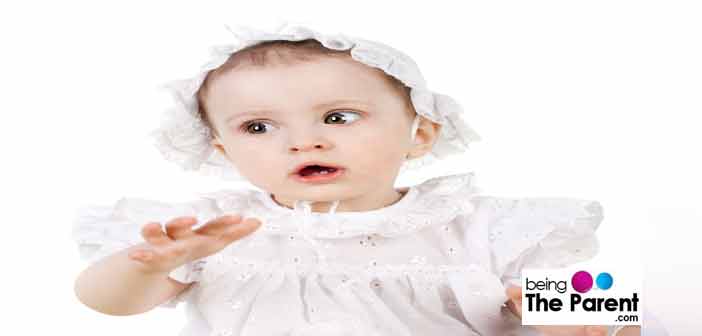
A child’s first words are like music to the parent’s ears. The wait is always eager and the anticipation surrounded is immense. So yes, it does get worrisome for parents when the children take time to let those cute expressions find words. However, most kids who seem to talk ‘late’, catch up with the others by the time they are 2 years old and that too without any special help. There is absolutely no link between a late bloomer and a slow brain – and parents must understand that every child is unique and develops differently. Many parents start worrying about the late speech and language development but one must understand the reasons of delay first before booking appointments with specialists and create a panicky situation.
What is normal?
Speech and language developments happen almost the same way for all children but the age at which the development strikes could vary. Experts say that a child should be able to speak at least one single word by age 1, 6-8 words by 18 months, and 2 word-combination by the age of 2 years. A 3 year old should be able to speak 3 word sentences. Apart from this, the child should be able to point to his body parts, make gestures, and look up on his name being called. You can read about the speech the language milestones here. Also, it may be mentioned here that the child may be able to speak only a few words, but he can understand many.
Difference between speech and language:
The words speech and language are used interchangeably by many people, but they are actually different. Speech implies creating sounds articulately to form words and verbal expressions. Language refers to the entire system of expressing and receiving verbal communication that one can understand and be understood.
Though a child can have problems with one of these, they will yet overlap and will require simultaneous attention.
Identify the problem:

- Below scenarios will give you ample clues to figure out if your child has any problem with respect to delay in speech and language:
- Preemies: Babies who are born early tend to take some time to reach the development milestones. They usually catch up by the age of 2 years. Infact, a child’s developmental milestones should be calculated by her due date and not from the date she was born
- Multiples: In case you have had multiple babies, chances are that they would have had low birth weight, premature arrival and some medical needs post birth. This could also be a reason for speech and language delay. However, you need to give your children some time before jumping to conclusions
- Oral impairments: Some babies can have problems with the tongue or the palate. Some kids can also have inefficient communication so as to signal the brain to coordinate the mouth, tongue, jaws, lips so as to speak
- Chronic ear infections: Poor hearing and delayed speech can be a result of a chronic year infection in the first year of a child’s life. This case is observed for children whose ears get filled with fluid and it stays for months at a time
- Boys: If you have a baby boy, chances are that he will develop his speech and language later than baby girl his age. Boys tend to be late bloomers, and the lag is about one to two months
Signs of a possible problem:
If you feel that your child is lagging behind the norms of language development take into account the following factors before seeking an evaluation for your 2 year old:

- He cannot say any words or phrases effortlessly in tune with his actions
- Cannot follow simple directions
- Sounds nasal or raspy when he speaks
- Is not understood when he speaks and has a drooling mouth
- You are concerned about the hearing ability of your child
What will the doctor do?
You can speak to the paediatrician about your concerns and if he feels the concerns are genuine, he will probably refer you to a speech language pathologist who will evaluate your child. He will observe the child, conduct some standard tests, and check out his speech and language development looking for milestones.
He will also evaluate –
- The extent to which the child understands – called the receptive language
- What you child can say – called the expressive language
- His efforts and attempts at communication
- The child’s oral motor status
- Sound development and speech clarity

After the evaluation, the pathologist may tell you that your expectations are far too high, in which case you will have to slow down and give your child some time.
If he feels that the child may need some speech therapy, he will need all your attention and support. You can attend the therapy sessions and also work on helping your child at home to aid in developing the speech and language. As parents, you will need to devote a lot of time, patience and nurture the little one. Spending time with the child, reading to him, and talking about everyday situations can help you encourage speech development.

